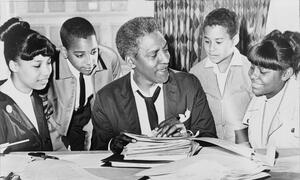Support for National Suicide Prevention Week
This Suicide Prevention Week—September 10 is World Suicide Prevention Day—support your students and your school community. These resources can help. Use this toolkit to help reduce mental health stigma, promote wellness and acknowledge the mental health needs of students and staff alike. Inform your students about support available through the Crisis Text Line, and use the E.D.G.E. technique to help students support one another throughout the year.
- Toolkit for "Demystifying the Mind"
- SMS SOS
- Worried About a Friend? Use Your E.D.G.E.

